Mairead Carlin: ‘If we lose Derry Feis, we will lose a piece of who we are’
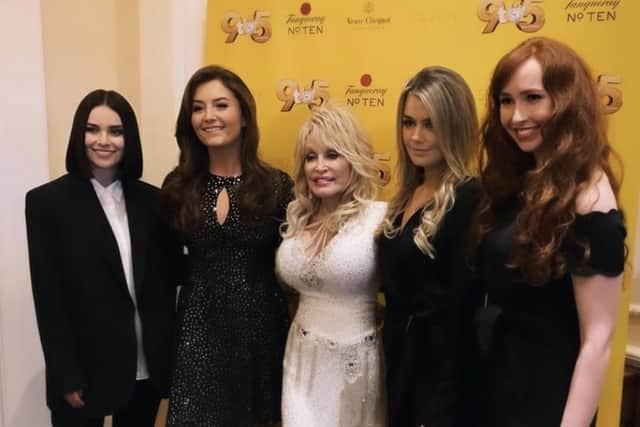

It was a contest that Mairead was initially nervous about entering. Naturally, like most teenagers mulling over a career in the performing arts she experienced a range of doubts and concerns.
The performing arts can be a cruel and unforgiving industry. To make a decision to pursue it as a full-time profession is massive and potentially life changing step. It is a career choice wherein often, even an abundance of natural talent is rarely enough to warrant success. In fact the only initial guarantee that aiming to perform at a professional level provides is an apprenticeship of unrelenting hard work. Ultimately, that sweat-inducing grind may never actually pay-off neither in terms of the acknowledgment of individual creative ability nor on a more practical level, simply earning enough to live on.
Advertisement
Hide AdAdvertisement
Hide AdThe public are always only too ready to slate performers without seeing the years of training that have gone before. Producers and directors drenched in subjectivity in their search for the ‘right’ face or voice for a role, can flippantly dismiss a performer with a wave of a pen without so much as a raising cursory upwards glance from their clipboard in an audition room.
Luck does therefore play a huge part on the path to success. Thankfully however, it appears to be at least true on some occasions that the harder you work the luckier you become.
What a younger Mairead Carlin didn’t realise as she took her unsecured plunge into her chosen profession was that she had already unwittingly gained a lot of the grit, determination and resilience needed to succeed. These were qualities she later realised had been learned almost subliminally in her native city years before.
Mairead said: “I was four years of age when I had my first singing lesson. I trained with Una O’Somachain. I would be completely lost without her. She just has a way with her that makes you believe in yourself. I think that’s the most important thing you can teach any young person and that’s what she did for me.
Advertisement
Hide AdAdvertisement
Hide Ad“My dad Hugo Carlin was a bass player in the showbands. He was in a band called ‘The Trend’ and he was just the most inspiring man. He was always buying and selling musical equipment. He and I would buy and sell stuff on ebay – that was our thing that we used to do together. There was always creativity in our house, but it was never forced upon us. It was very organic. There was always music there. I grew up around all my daddy’s musician friends. His friends were my friends and my whole childhood was steeped in that world.
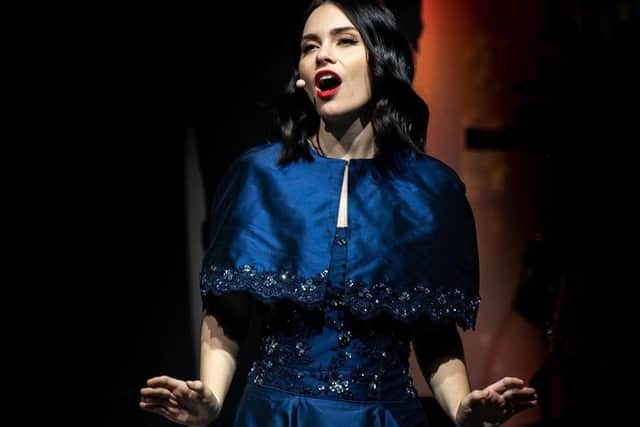

“There wasn’t a day of the week when I was in the house. Every single night I was doing something related to music. I spent a lot of my childhood in the City of Derry Youth Choir and then I moved onto Codetta with Donal Doherty. For me that was really one of the places where I learned my craft. I lived and breathed music to be honest and I was very lucky with the teachers that I had.”
Living and breathing music is surely a wonderful attribute for anyone to have. It is a different matter, however, to want to make it your life’s work. So when did the decision come to have a crack at it?
Mairead said: “When I was 15 I saw a competition advertised on TV and it was for BBC Talents, Young Singers. I put myself forward for it and I didn’t tell anybody. I was going to chicken out. That’s something that has followed me throughout my career. I put myself forward for stuff and then I’d panic and pull myself out of it. But, what I didn’t realise was that my mum had had seen it and had also entered me.
Advertisement
Hide AdAdvertisement
Hide Ad“My mum wasn’t pushy at all. She saw stuff and put me forward for it, but if I didn’t want to go then I didn’t have to go. But, we decided I would go up for it anyway. A funny story about that was I thought I hadn’t got a recall. I thought that they’d called my name out saying I hadn’t got through, so I was leaving the audition room and they ran after me and called me back and said I was one of two recalls. Anyway, long story short – I won it.
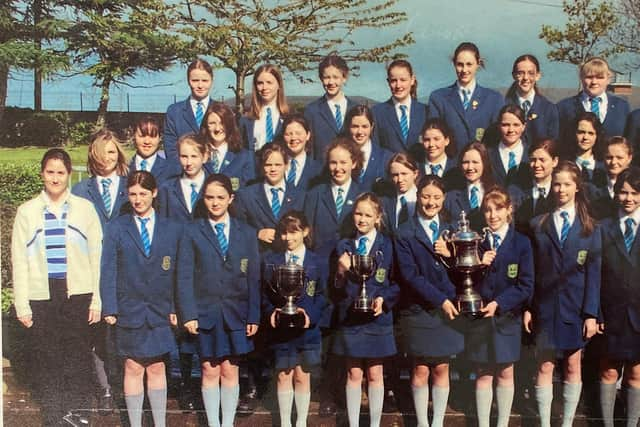

“That was my first experience of being in a professional setting. I got to record at Abbey Road with some of London’s best musicians for Sony Classical. I think that was the first time I thought that I actually love this. This could be a career.”
Having graduated in vocal performance from Trinity Laban Conservatoire of Music and Dance in London, the Royal Academy of Music offered Mairead a postgraduate scholarship in musical theatre. The offer was declined in favour of signing a recording contract with Decca Records. Her debut album, ‘Songbook’ recorded with the London Philharmonic Orchestra, followed.
Since then the Derry singer has performed for the President of Ireland, sang the national anthem at an England v Ireland rugby international before a television audience of millions and shared the stage with Snow Patrol and The Priests during the ‘Sons and Daughters’ gala concert during the City of Culture events in January 2013. Notably on the same night, at the concert which was broadcast live by the BBC, Mairead provided a highly moving rendition of ‘Scarlet Ribbons’ – the unofficial anthem of Derry’s factory girls which recognises and appreciates their vital contribution to the working life and economic life of Derry.
Advertisement
Hide AdAdvertisement
Hide AdThen came the recording of Carly Simon’s ‘Let the River Run’ with Glee star Damien McGinty. Adopted as the official anthem of the City of Culture, so impressed was the American icon’s rendition of her song that she said: “I just played it and cried my eyes out and I’m still crying. It’s absolutely stunningly wonderful. Thank you for doing me proud.”
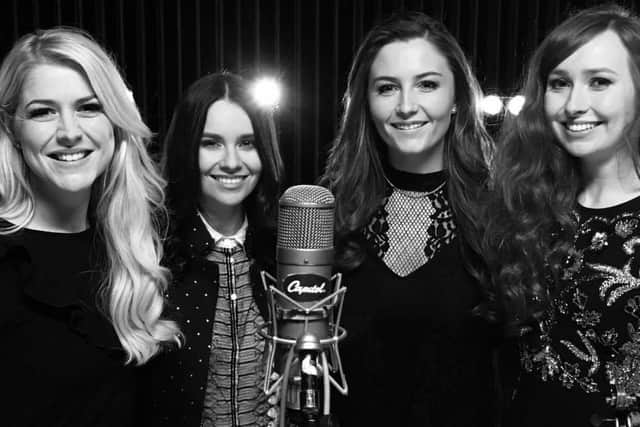

Carly Simon later invited Mairead and Damien McGinty to perform live with her in Los Angeles at benefit gig and released the single under her own label. Mairead also toured the UK and Ireland with another American legend of the music industry Don McLean, including a sell-out gig at the Royal Albert Hall. Also in 2013, she made her debut with the National Symphony Orchestra in the National Concert Hall for RTE. Then, in August 2013, she became the first woman from the north of Ireland to join the cast of the globally acclaimed Celtic Woman.
However, Mairead is in no doubt that the first tentative steps on the road to performing with such success and acclaim were taken much closer to home years before at Feis Doire Colmcille. Recalling her first performance at the feis, Mairead said: “I think I was five. At that stage it was just fun. There was also a social element to it as well. I loved being around other kids. I learned so much from the people around me as well – the other kids and seeing what they were doing. I think that’s why the feis is so important because I feel that as a society we are so used to being in our rooms and on social media – putting stuff up online and it’s so isolated.
“It’s that desire for instant gratification. We put stuff online and expect people to instantly like it.
Advertisement
Hide AdAdvertisement
Hide Ad“What the feis taught me was to graft and to appreciate other people, to learn from them and that you’re not always going to be a winner and you’re not always going to come out on top – but maybe you will next time.
“I think we are losing that a bit and that’s why the feis is so important.
“I think my first feis was in the Minor Hall at the Guildhall. My mum tells a funny story about it. I got up and I sang like a mouse. I was really shy and I was looking down at my feet. Needless to say I didn’t place anywhere. Apparently I opened my throat and burst out crying because I was so upset.
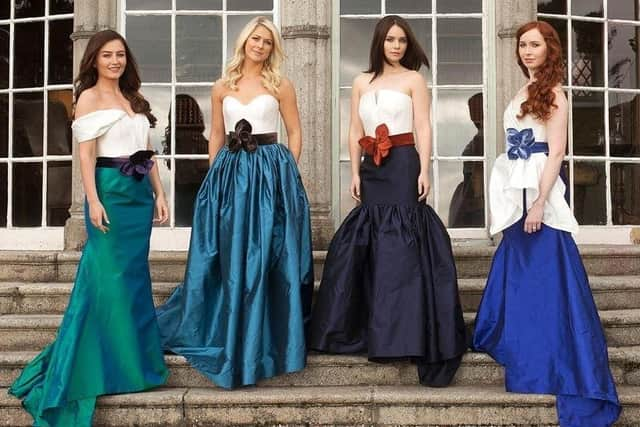

“But, the adjudicator gave me notes and I listened to what he said even though I was only five. The advice was to ‘look up, sing out, use your voice and project’. The next year, at a different feis, I sang again, did everything that he said and I won.”
Advertisement
Hide AdAdvertisement
Hide AdOne obstacle that performers at Derry Feis often had to overcome was the din from the audience who were often virtually on top of you when you tried to show off to the best of your abilities what you’d learned in the intervening year.
For singers especially, clattering teacups and teaspoons, the slurping of the contents of those teacups and the rustling of the ubiquitous plastic bags and crisp packets must have seemed to reach sound levels akin to an elephant dancing angrily in a skip full of broken light bulbs. It was often incessant and definitely something the already strained nervous systems of performers could have done without.
Mairead continued: “In many ways that kind of experience toughened you up a little bit. Of course when you’re singing or dancing you want people to be quiet but at the end of the day not everyone is going to be quiet. There’s always going to be a couple of people in any audience wherever you are doing something. And, in the end you tell yourself I just have to get on with this and forget about them and focus on the people that are listening.”
So, for Mairead Carlin and countless other performers, the feis was where the first unspoken lessons on the ability to concentrate were unknowingly subsumed.
Advertisement
Hide AdAdvertisement
Hide AdShe added: “I’ll be honest with you, when I first went off to college in London, I was so shocked when I got there that around three-quarters of the 20 students in the vocal department had never performed in front of people before. I wondered how they’d got to this stage without performing in front of people. They were incredible singers but they’d never performed.
“They had incredible voices but were seriously lacking in performance experience. I was probably not as accomplished in my vocal training as they were but I certainly had the performance experience. That is one hundred per cent down to Derry Feis. Without the feis, I would not be sitting where I am today and I wouldn’t be doing the things I am today.
“That is where I learned my craft. I learned at Derry Feis and I learned it from my teachers in Derry. I learned it from Una O’Somachain and I learned it from Donal Doherty.
“I think I was just a very quiet learner. I learned by absorbing material and I still do that to this day. I learn by absorbing what’s around me. I’ll go away and listen to several versions of a song over and over again, then I’ll do my own interpretation of it. That’s always how I’ve been, so when it came to Derry Feis I was quietly picking away at it until it was time to get on stage. I didn’t leave any stone unturned or leave myself in the position that when I got up on stage I didn’t know what I was doing.
Advertisement
Hide AdAdvertisement
Hide Ad“I was so ready by the time I got on stage. It was a year round thing. It was about working on my examinations and then working on stuff for Derry Feis. A lot of the time it overlapped anyway. I sang a lot of the repertoire I had studied for my grades at the feis. But, there was always such a buzz about the feis. It was a full week of getting to play music, sing, act and be with your friends and eat sweets. You got away with blue murder and if you won a medal you got more sweets.
“I am still a believer to this day that the most important thing is about taking part. But, I would be lying if I said that when you do get that medal, that it gave a sense of all the work that I put in has amounted to this. I never thought it gave a sense of approval, because you don’t need to win to achieve that, but it does encourage you to keep going. For many others it’s not the medal that encourages them, it’s the social and emotional aspects of it. I think that’s what Derry Feis did for me. It was connecting to the people and the music.
“What I love about Derry is that is that the people are so musical. You could look into someone’s eyes in a Derry audience and you can see that they are moved by what you’re doing. They feel things so deeply. So of course winning medals was amazing but it always has been for me looking into the faces of the audiences and knowing they are getting something from it and that gives me something from it.”
Finally, the ‘Journal’ asked Mairead Carlin how important does she think the cultural legacy created by Feis Doire Colmcille in the last century is to this city and further afield?
Advertisement
Hide AdAdvertisement
Hide AdShe said: “It’s imperative. To be quite honest, if we lose the feis we will lose a part of our identity because wherever I go in the world I talk about Derry Feis and how important it is. If we lose Derry Feis I think we will lose a piece of who we are. I really, really do believe that. So I hope that people continue to sign up and I also hope that we can preserve the repertoire of music that has been performed at the feis in the last century. Otherwise it’s going to be lost.
“It’s so important that we don’t lose that music. A lot of it is passed down through ear and interpretation. You actually learn it when you sing it with other people as opposed to just reading notes on a page. Una O’Somachain sings it the way her daddy (James MacCafferty) would have sung it and that’s how it continues.
“Once children go into their bedrooms, the voices grow silent and that’s it. We have to just get out there and perform in front of people not in front of computer screens. Obviously we can use the internet to better ourselves and to put ourselves out there and it’s a brilliant tool for that, but not at the cost of actual human interaction.
“The people of Derry can sing. There’s just something about us. Almost everyone can sing and we are pretty good at it. There was a video recently on YouTube of a young boy singing Danny Boy to a Canadian sailor during the war in The Diamond. Oh my God. I have never seen such a born superstar. He had nothing, nothing at all but he was just singing because he loved it.
“That is everything that Derry is to me.”